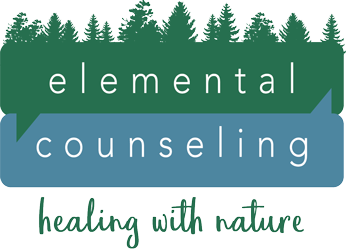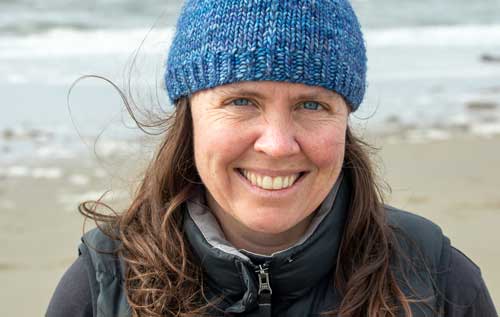This post is written for those of you interested in incorporating ecotherapy into your practice. If you’re interested in more like this, check out the posts, ‘So You Want to Be an Ecotherapist/Nature Based Therapist’ and ‘Outdoor Logistics for Ecotherapists/Nature Based Therapists’
Ecotherapy/Nature based therapy is in relatively early days in the clinical model. Given that, we have a tremendous opportunity to co-create a fuller, more inclusive, and necessary conception of therapy. How we implement that in a clinical setting will vary for each of us, but I think there are some core values to hold onto regardless of our client population, bioregion, personal background, and other preferred modalities.
Tend to your own relationship with the earth
First and foremost–tending to our own relationship with the earth. There are infinite ways to do this and I have no prescription for the ‘how’. But to be an effective ecotherapist, you must have your own relationship with the land. You must tend to it constantly and creatively, like any relationship. It must be a reciprocal and caring connection and above all, authentic to you and the land to which you connect.
Explore with your clients what their own reciprocal relationship with land looks like
The last thing we need in this world is yet another extractive, ‘resource’ based way to ‘use’ the earth for human purposes. Sure, I believe being outdoors/in relationship with nature benefits my clients or I wouldn’t do it. But it also has to benefit the earth, or we’re just perpetuating the mindset that got us so disconnected from earth in the first place, and the earth in such pain itself due to human ‘use’ of its ‘resources’.
Pay attention to your cultural background and how its relationship with land informs past and present injustice
This paragraph is for people who, like me, come from a lineage of settler/colonizing people. (BIPOC readers, please feel free to go to the next bullet point). It is likely that your ancestors were disconnected from relationship with earth generations and generations ago. It is also likely that since that severing, your culture caused tremendous damage to indigenous people and to the earth–and continues to do so today. Our actions and beliefs are deeply influenced by that culture, and we need to pay attention to that. Constantly. We who are part of settler/colonial cultures need to reckon with our part in all these layers of damage, past and present, and continuously work towards repairing those harms. We also need to be open and curious with our BIPOC clients about their own ancestral and present experiences of relationship with land, as well as what it is like for them to be exploring that relationship with someone of our heritage.
Response to climate change is an essential part of our work
If we are truly in relationship with land, we cannot help but know that the earth is suffering tremendously because of human choices and actions. Personally, I don’t think we can practice as ecotherapists without acknowledging that we are living in a time of climate emergency. That is a deeply painful thing to grapple with. It is a source, for me, of steady grief, mourning, and anger. We cannot ask ourselves or our clients to build relationships with the earth without naming and validating the emotional impacts of living and loving in an era of climate change. In addition, we need to recognize that BIPOC, low-income, and other marginalized communities are far more directly impacted by the impacts of climate change. It is necessary that you have your own ways of holding all of this complexity so you are prepared to help others navigate it.
Find support for individual and community ecotherapy ethics
This field is not linear, defined, or regulated. This is both a strength and a challenge. It is a strength in that it allows each person to bring so much of their own selves and wisdom into the work. We can experiment, be creative, build bridges across modalities, collaborate with folks outside of the clinical world, and be responsive to emerging needs and discoveries. All so cool. And also challenging. There is no regulatory board or best practices or universally adopted code of ethics for ecotherapy. But especially because of the depth of the work and the systems level connections inherent within it, ethical practice is absolutely essential. Since we don’t yet have much in the way of formal structures to help us do this, it is our responsibility to create and uphold communities and practices that support us, individually and collectively, in making sure our work is authentic, just, and working towards good for people and the planet.
Integrating other modalities
From my perspective (acknowledging again I hold no particular expertise, just some practice and passion) ecotherapy holds plenty of space for many other modalities that resonate for you. Anything somatic is an obvious (even necessary) fit–we live in animal bodies, after all, and how could we not include that with an ecotherapy lens? Mindfulness based work is easily incorporated into an ecotheraptic container. Anyone working from a polyvagal/neuroscience lens will find plenty of opportunities for in the moment exploration of regulation outdoors/in relationship with nature. Expressive arts, drama therapy, Gestalt, and any other experiential approaches easily blend with a broader container and can be creatively integrated. You get the idea. I don’t think ecotherapy has any need to say ‘do therapy this way’. You can be the therapist you already are–but include a critical dimension to human and planetary well-being that is very much missing in clinical training, and much of modern culture in general.
It’s not just about what happens in a session, it’s about who you are in the world.
Incorporating ecotherapy into your work doesn’t just include what you do during a session and where you do it. When you start thinking about relationships between human and earth as critical to your work, you may find your intake forms, initial sessions, client conceptualizations, ‘homework’ assignments, and termination sessions all take on a different shape. You may also find this way of thinking/feeling informs how enact your values in the world, as a clinical professional and beyond. For me, this is the real power of ecotherapy. Embrace it all!


